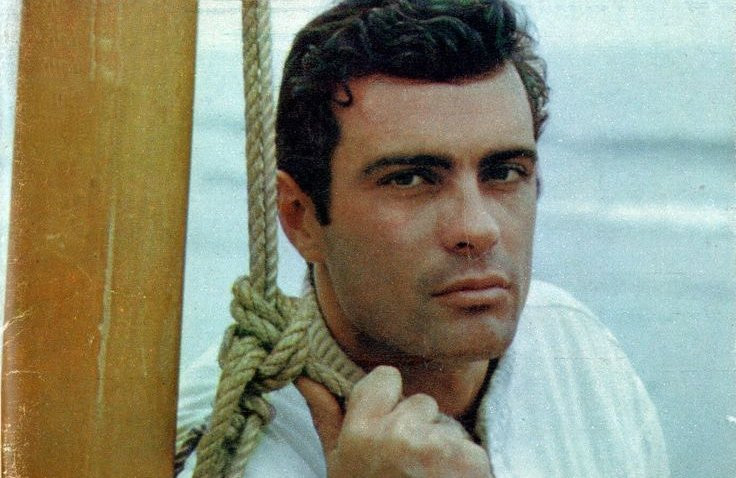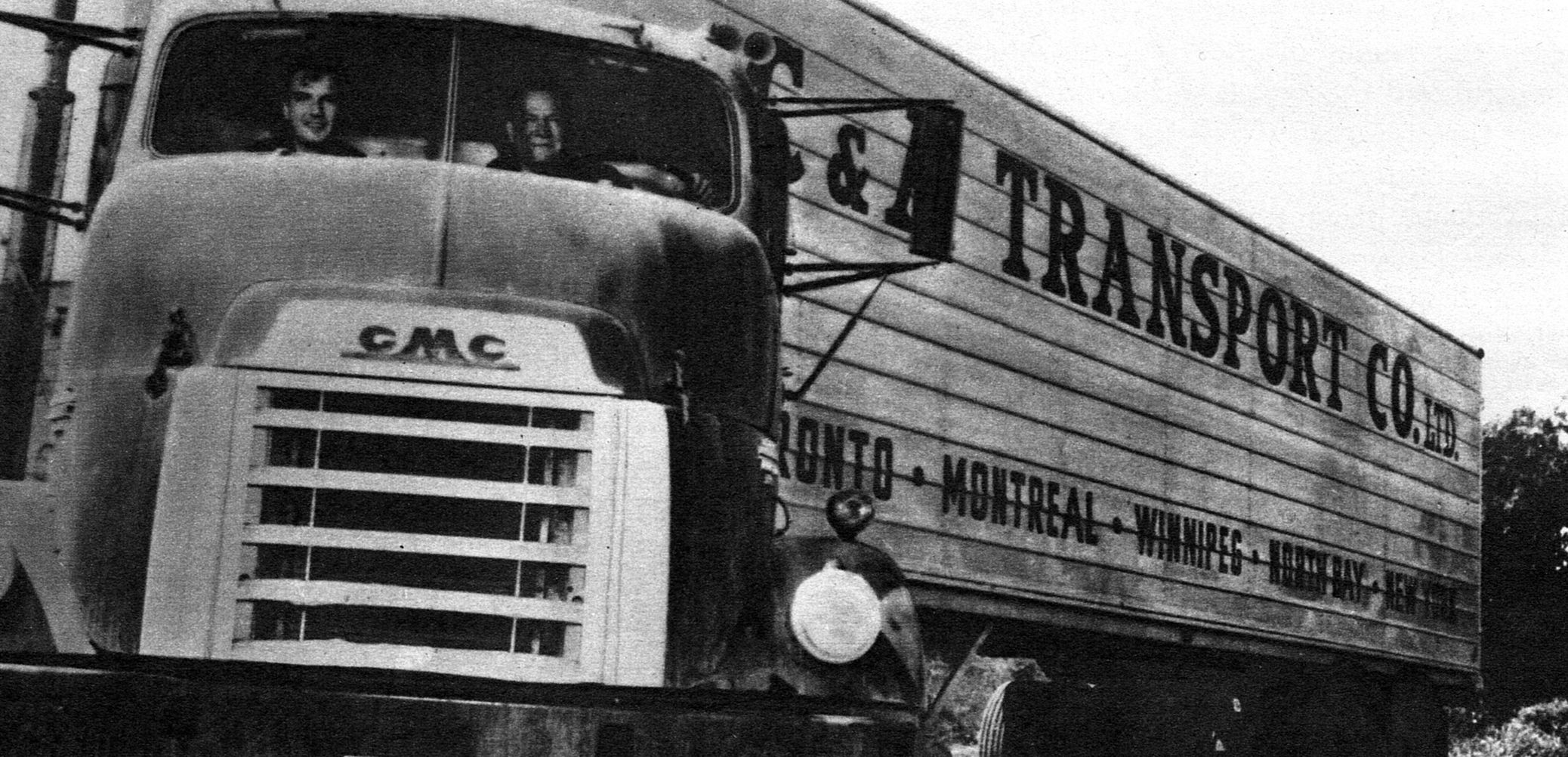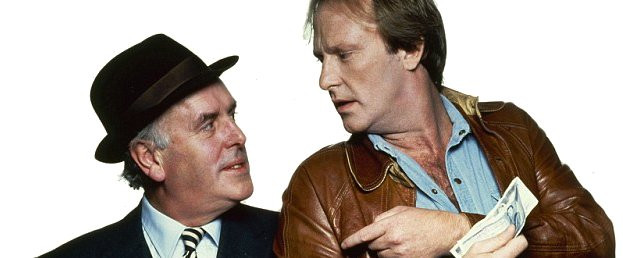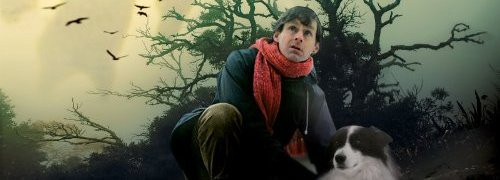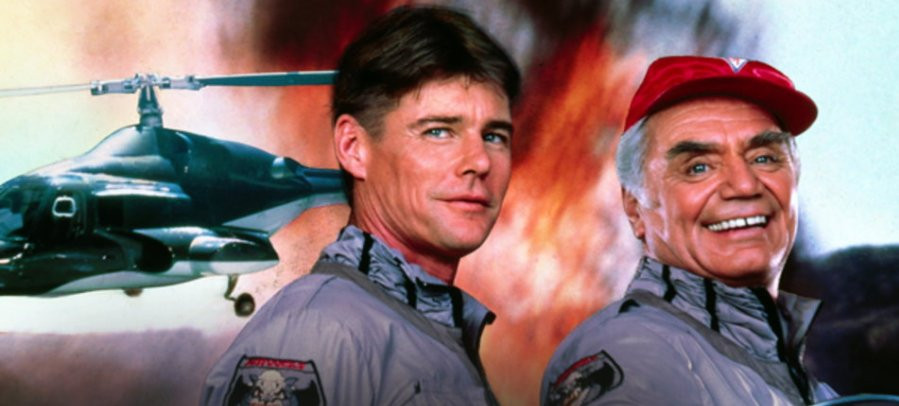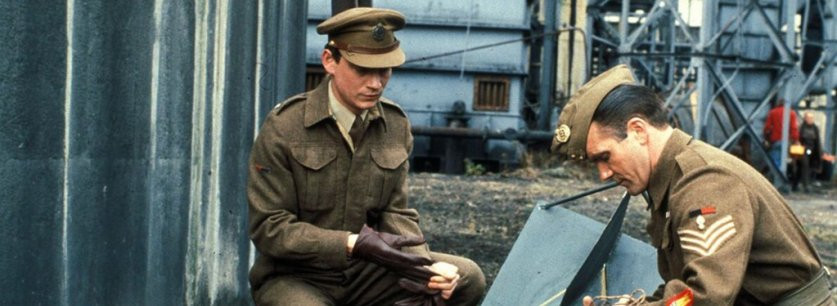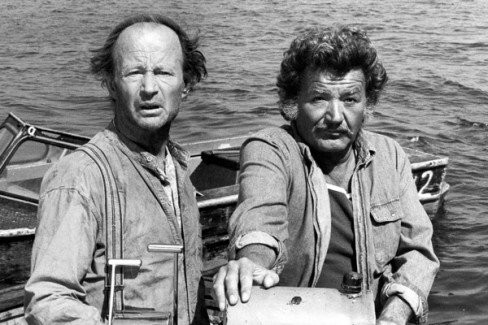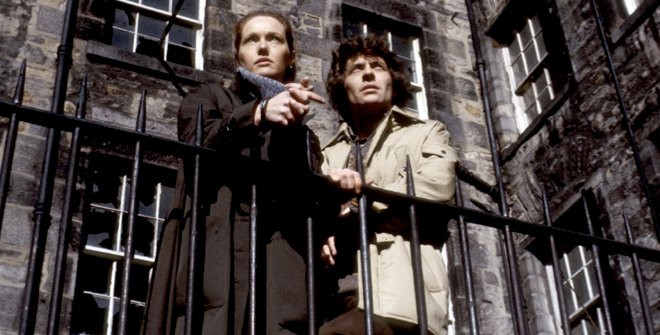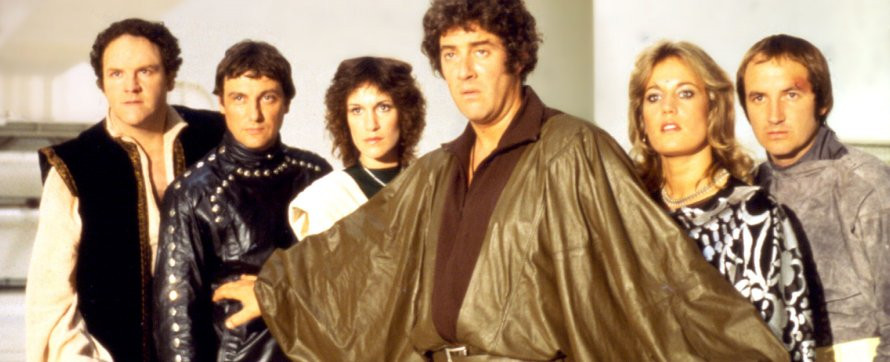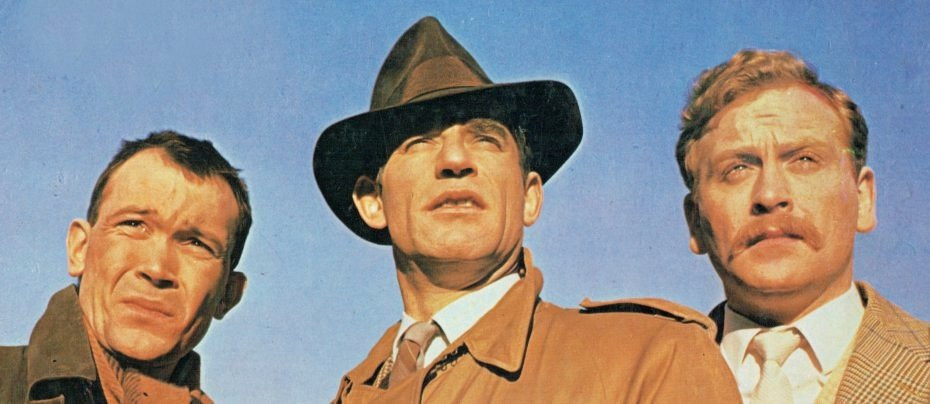
Dick Barton - Special Agent
1979 - United KingdomBarton’s audience continued to grow, boasting anywhere between 15 to 20 million listeners at its peak
review by Laurence Marcus
With its stirring introductory theme tune (Devil’s Gallop by Charles Williams) that brought to mind the promise of rip-roaring escapades and tales of derring-do, Dick Barton – Special Agent, enraptured a generation of young listeners every night of the working week from 1946 to 1951, delivering British radio’s first all-action hero and something of an audio-adventure phenomenon.
The series, devised by producer Norman Collins, director of the BBC Light Programme with scripts by Edward J. Mason, was 15-minutes of breathless adventure in which our hero and his chums, Jock Anderson and Snowy White, fought the good fight, despatching baddies and righting wrongs, whilst keeping its listeners on the edge of their seats with each episode ending on the precipice of some personal disaster before finally saving the day ‘with a leap and a bound’ at the start of the next one.
Despite its ability for bringing youthful Britain to a standstill as their ears became glued to the radio, Dick Barton – Special Agent was originally intended for an entirely different audience.
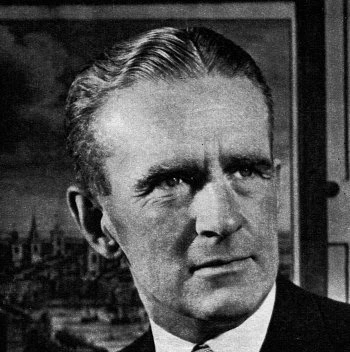
Collins, a forward thinker whose drive and determination to entertain the British public meant that he was destined to leave the Light Programme for the all-important task of developing television for the BBC, had inherited a mid-afternoon soap-opera, The Robinson Family (‘the day-to-day history of an ordinary family’), which he saw as a typical example of pedestrian BBC drama which was neither exciting nor inspiring. He set his team a task of looking into the notion of a cloak-and-dagger soap opera and together with producer Martyn Webster and writers Geoffrey Webb and Edward Mason, he devised the new character, ordered scripts to be written and reserved three rehearsal and recording days at the BBC studios in Birmingham (Broadcasting House was already fully booked) to record the first six episodes.
The next task for the writers was to find a name that would reflect the character – an all-action hero, a former Military Cross winner at Dunkirk, member of a crack commando unit, now retired but restless and at pains to put his skills to good use. Bill Barton was the name originally suggested but was not considered suitable for a hero who was described by the stuffy BBC execs as ‘middle class,’ and so other suggestions were put forward; Peter Drake, Rex Drake and Michael Drake all had nautical connotations, but Barton was the favoured surname. It was Collins himself who, in the end, decided on Dick Barton, and everyone agreed the name had the right sound.
On 14 September 1946, Collins sent a memo to the BBC’s Head of Drama, Val Gielgud. ‘I know you are going to hate hearing this, but the first instalment of the Dick Barton series is really awfully good. Just what we want. On this showing, the thing will run for years.’
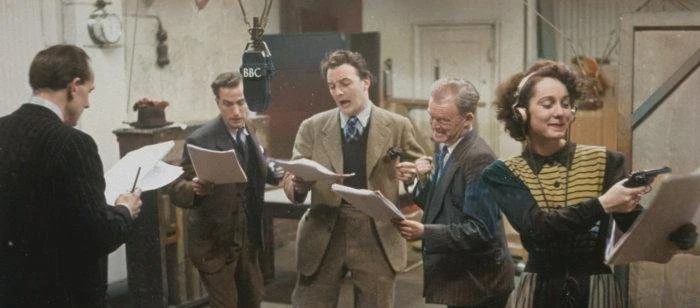
Indeed, right from the first episode, Dick Barton – Special Agent was a huge success. That first episode was broadcast on Monday 7 October 1946 at 6.45pm and by the end of the first week, Barton, Snowy White and Jean Hunter had heroically and epically survived their first adventure together. (Jock Anderson would join the group by episode 17 and Jean later disappeared). Word quickly spread among youngsters and a very healthy listenership began to follow. The critics though, and there were many, were far from impressed.
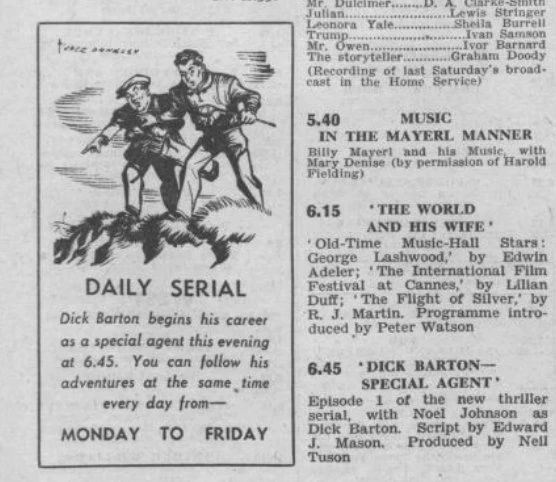
The Morning Star claimed that the show was ‘so bad as to be beyond most criticism’, before dubbing Barton as a ‘crypto-facist.’ Some older listeners wrote to the National Newspapers of the time to complain about the programme’s possible harmful effects on children but The Times newspaper were moved to write an editorial – in the show’s defence:
Dick Barton with that manly, ringing voice of his may not be everyone’s idea of a perfect hero, but he must be gratified by the number of voices that have been raised on his behalf.
Children are generally rather more tough and sensible than those who fear the influence of serial or cinema are apt to believe, and Dick manages to squeeze his hair-raising adventures into a quarter of an hour – and a quarter of an hour can be a refreshing break in a “prep” (homework) which can often run six times that length.
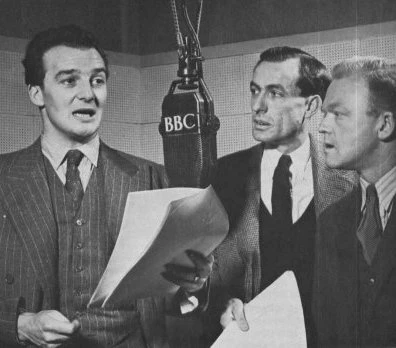
Some claimed that Barton’s adventures were responsible for the rise in juvenile crime and one father even tried to defend his son’s misdemeanour in court, blaming the radio show for the errant boy’s behaviour, before the judge in the case rebuked him quite succinctly by telling him, “Dick Barton doesn’t take other people’s property!”
Nevertheless, Norman Collins had to admit that even he had underestimated the series’ appeal and the audience that would follow it. The BBC never had a young audience in mind, but Collins was philosophical about it and said, ‘that is what we’ve got and we must act accordingly.’ With this in mind, on 27 August 1947, Collins circulated a twelve-point code of conduct for writers of the series.
1. Barton is intelligent as well as hard hitting. He relies as much upon brains as upon brawn.
2. He only uses force when normal, peaceful means of reaching a legitimate goal have failed.
3. Barton never commits an offence in the criminal code, no matter how desirable the means may be argued to justify the end.
4. In reasonable circumstances, he may deceive but he never lies.
5. Barton’s violence is restricted to clean socks on the jaw. The refinements of unarmed combat taught to British commandos cannot be practised by him or his colleagues. When involved in a brawl which ends in victory for the Barton side, he must be equally matched or outnumbered.
6. Barton’s enemies have more latitude in their behaviour, but they may not indulge in actually giving an injury or punishment which is basically sadistic.
7. Barton and his friends do not wittingly involve innocent members of the public in situations which would cause them to be distressed. For example, a motor car cannot be requisitioned for the purpose of chasing bandits, without the owner’s permission.
8. Barton has now given up drink altogether. No reference should be made to its existence in the Barton circle. The villains may drink but never to excess. Drunken scenes are barred.
9. Sex, in the active sense, plays no part in the Barton adventures. In other words, Dick has no flirtations or affairs and his enemies have no molls or mistresses (as opposed to partners). This provision does not of course rule out the possibility of a decent marriage (not involving Dick personally) taking place.
10. Horrific effects in general must be closely watched. Supernatural or pseudo supernatural sequences are to be avoided – ghosts, night prowling, gorillas, vampires.
11. Swearing and bad language generally may not be used by any character. This ban ranges from ‘bloody’ through ‘God,’ ‘damn’, and ‘hell’ to ugly expressions currently heard in certain conversations but not considered admissible for child usage in middle-class homes.
12. Political themes are unpopular as well as being occasionally embarrassing. The man-who-wants-to-control-the-Earth creates little impact and is best left out of the Barton world.
As well as the code, the star of the show Noel Johnson had to renounce smoking, drinking and women – and it’s said that even his housekeeper had to go. Johnson, like Barton was born in Birmingham and had been wounded at Dunkirk, being invalided out of the Army in 1941. He had turned to acting and by 1946 was busying himself with the BBC Repertory Company when the offer to play Barton was made. He received a standard BBC salary and the Corporation were quite happy for him to boost his income by making personal appearances up and down the country. But as the series popularity grew the Beeb put a stop on him promoting any products and he had to turn down what might have been a lucrative deal to appear on the packets of Kellogg’s Corn Flakes.
Barton’s audience continued to grow, boasting anywhere between 15 to 20 million listeners at its peak. His fans were left devastated and bewildered when, on 15 December 1947, they tuned in to discover something entirely different in its place. The Birmingham Daily Gazette on 16 December 1947 cleared up the mystery after reporting that, 'Tragedy struck at thousands of home-work hours last night. Dick Barton - Special Agent was missing. So was Snowy - So was Jack. A recording hitch meant that Monday night's episode was not broadcast.’ Thankfully, normal service was resumed the following night before any youngster was severely traumatised.
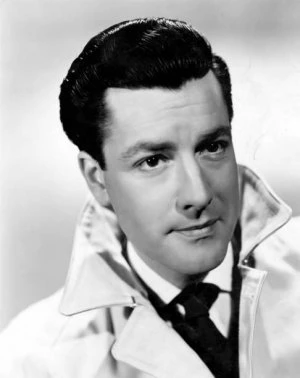
In 1948, Hammer Film Productions made the first of three films attempting to replicate the excitement of the radio series. With a budget of just £20,000, a corny plot and the overlooking of Noel Johnson in the lead role in favour of the relatively unknown Don Stannard, the film was a moderate success. It is perhaps best remembered for the immortal line uttered by Jean Hunter: It's no use Betsy, I can't stand it any longer. I'm going out to look for Dick. One can only imagine the moral guardians of the day falling off their cinema seats with apoplexy!
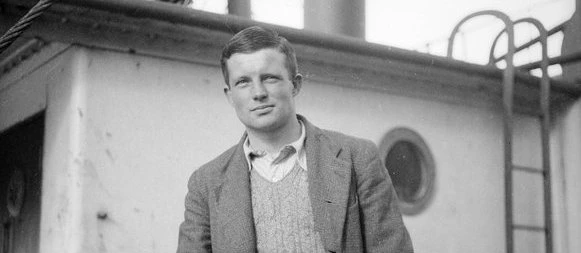
For the fledgling Hammer Film Productions company the box-office returns were sufficient enough to commission three more films (versions were also released in cinemas as six-episode serials at Saturday morning children’s film clubs run by the various cinema chains at that time). Then in 1949, Stannard, aged only 33, was tragically killed in a car crash whilst driving back from the wrap party of the third film, ending the Dick Barton series. The film was released in 1950 but a fourth film was cancelled. And by that time, Dick Barton – Special Agent, was beginning to lose its appeal on radio, its previously captive audience was now growing up and moving on to other things. Noel Johnson, perhaps a little peeved at not getting the film role had left the series in 1949 and was replaced by Duncan Cars, an English explorer and actor known for surveying South Georgia, who would then leave the role to continue his explorations, allowing Gordon Davies to take up the role for the final Barton adventures.
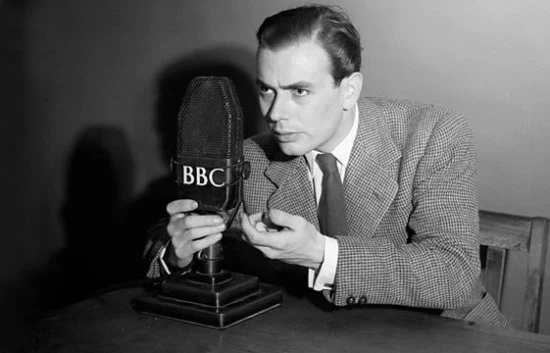
Val Gielgud had never been a great fan of Barton and had never felt comfortable with the sensationalism surrounding the series and headlines such as ‘Dick Barton – Too Thrilling for Girls?’ made him feel particularly uneasy. To replace it he bought in a drama series with a much gentler feel. Created by Godfrey Baseley in 1950, The Archers, an everyday tale of country folk, was, believe it or not, actually promoted as 'a farming Dick Barton.' From April 1951 it took Barton’s 15-minute slot - and has proved quite resilient ever since.
Following Barton’s radio demise nothing much was heard of the character apart from a 1972 BBC Golden Jubilee special which featured an abridged 10-episode of the original story. Then in 1977, Southern Television, the ITV broadcasting licence holder for the South and South-East of England, decided to revive the product as a television series. Following the same style as the original radio series, each episode was around 15-minutes long.
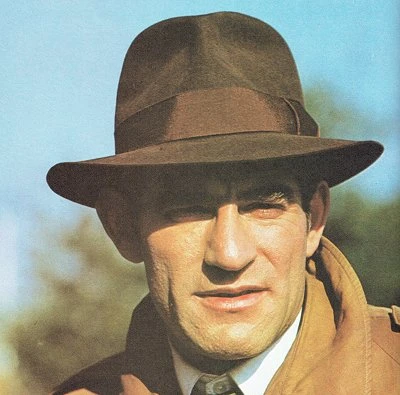
Tony Vogel was cast as our eponymous hero. An actor who wouldn’t have looked out of place as James Bond, Vogel gives an outstanding performance as the square jawed Barton and may well have made more of the part had it been a half-hour episode series. But the whole thing is done, as was the radio series, at a break-neck speed with an obligatory cliff-hanger, not really giving the actors a chance to get their teeth into the roles and establish the characters. It’s a shame, because there was a great deal of promise from Vogel and the rest of the cast, particularly the ever excellent and prolific James Cosmo (Braveheart, Shetland, The Bay) as Jock Anderson and the popular Anthony Heaton (Dixon of Dock Green, The New Avengers) as Snowey (sic) White, who tragically died at the youthful age of 39.
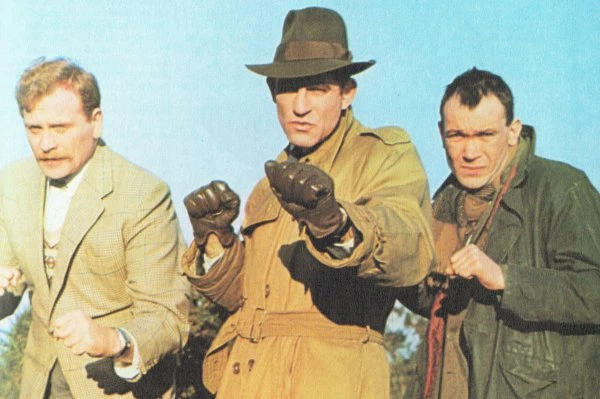
Despite the filming being completed by the spring of 1978, ITV held it back, possibly due to the World Cup coverage that summer, and so it didn’t reach our screens until January 1979. As a result, the first of two Dick Barton - Special Agent tie-in annuals were on the shelves before the series was even seen. The four separate "adventures" were all untitled in the series, but the novelisations of the stories were named in the order they were shown: The Great Tobacco Conspiracy, The Mystery of the Missing Formula, The Case of the Vanishing House and The Gold Bullion Swindle. There were 32 episodes in all. There’s no explanation as to the spelling change of Snowy to Snowey which one can only assume is either a (TV Times) typo or was a last minute change for reasons unknown, as the 1978 annual has the original spelling of the character’s name.
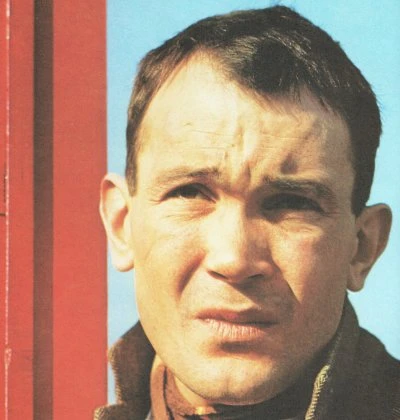
While most of the ITV networks showed it on Saturdays and Sundays (giving it a weekend omnibus edition, the same as the radio series), the episodes were broadcast in the early evening slot on Southern, Mondays through to Thursday in the radio series' original timeslot of 6.45 to 7.00pm, but unlike the radio series, it failed to capture the imagination. Allegedly there were budgetary issues with the filming and instead of being shot on film it was shot on video, a format that tends to make programmes look cheaper than they are. This was quite popular at the time and although a process was available to bring the picture up to quality it does not appear to have been utilised here. Certainly no expense was spared on location work which is plentiful and there indeed might be the crux of the productions problems.
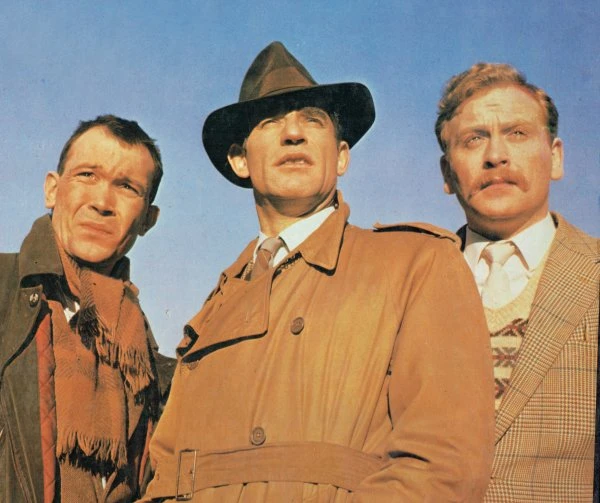
The scripts – mostly by Clive Exton, who would later bring Agatha Christie’s Poirot and Jeeves & Wooster to television were played straight even though there was an opportunity to play it very much tongue-in-cheek. That at least brings more of a believability factor to it. The series was clearly aimed at the same young audience that the original radio series had for a following, but it never really appears to be ‘just a kids’ show.’ Given time, a bit more money and longer episodes it’s just possible that Dick Barton – Special Agent might have been developed into a more successful series. But in 1981 Southern lost its franchise and not even Barton, with a leap and a bound, could do anything about it.
Published on December 7th, 2022. Written by Laurence Marcus for Television Heaven.


